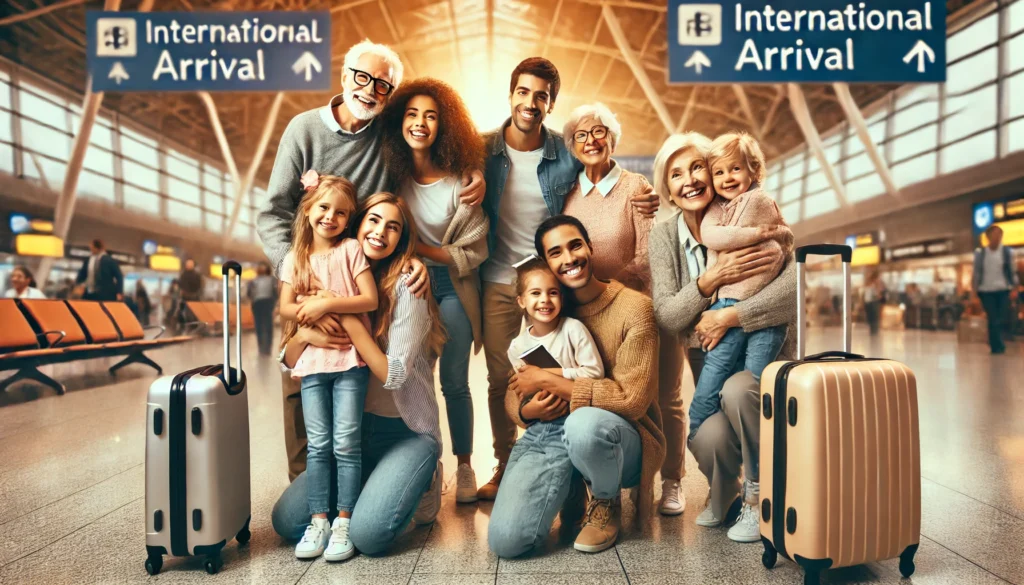Family Reunion Visa
A Family Reunion Visa is an extraordinary immigration route tailored to reconcile family members divided by boundaries. It enables close relatives, such as children, spouses or parents, to reunite with a family member living abroad on a legal framework. This type of visa highlights the relevance of family unity, making sure that people can preserve their personal relationships even when living in a foreign country

Duration and Renewal
Many family reunion visas are granted for a temporary period, but renewal or extension options are usually available. In some cases, family reunion visa holders may be eligible for permanent residency or citizenship after meeting specific requirements.
What is meant by a Family Reunion Visa?
A Family Reunion Visa allows a foreign national to reconcile with their family member who is on a long-term visa, a citizen or a permanent resident in another country. It’s predominantly designed to reinforce the right to family life by soothing the legal process for families to live together.
This visa usually applies to:
- Parents of Minors
- Dependent Children
- Spouses or Partners
- Other Dependents (in some cases, such as grandparents or siblings, influenced by the country’s rules)
The requirements, eligibility and application process for this visa differ from country to country, considering family values and local immigration policies.
Family Reunion Visa: Main Components
- Dependent Status: Most candidates get a dependent status, allowing them the privileges affiliated with the sponsor’s visa type.
- Accessibility to Core Rights
- Entitlements rely on the sponsor’s visa conditions and residency status.
- Some countries authorize dependents the accessibility to healthcare, education and work permits.
3. Duration
- Can lead to permanent residency following a set period in many countries.
- Ideally aligns with the length of the sponsor’s residency status
4. Reconciliation of Families: Makes sure family members divided by migration can stay together in the host country.
The Eligibility Criteria
Each country has certain requirements, but usual criteria includes:
- Residence Status of Sponsor: The sponsor must be a citizen, permanent resident, or on a long-term visa.
- Economic Capability: Sponsors usually ask to show enough earnings to back family members without relying on public resources
- Housing: Evidence stating that the sponsor has suitable housing for the family.
- racter and Health Necessities: Medical inspections or police clearance certificates may be asked for.
- Relationship Proof
- Legal adoption papers, where relevant.
- Marriage certificates for partners.
- Birth certificates for kids.
Advantages of a Family Reunion Visa
- Economic Opportunities: Many visas permit dependents to contributing to the host country’s economy by working there.
- Integrating in the Social structure: Dependents usually get accessibility to social and educational systems.
- Emotional Well-Being: Family reconciliation improves stability and mental health
- Pathway to Permanent Residency: Reunification of family can lead to permanent residency in many countries.

